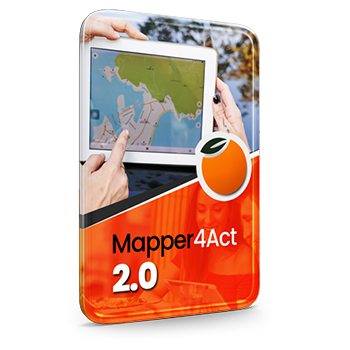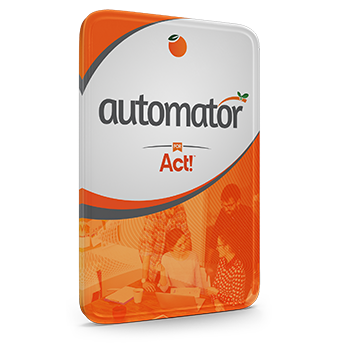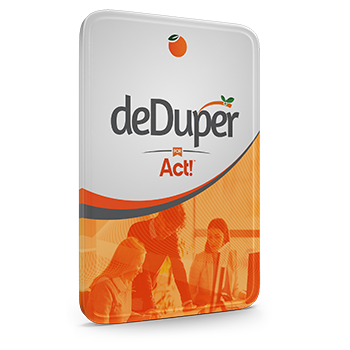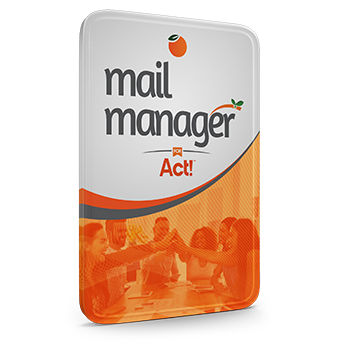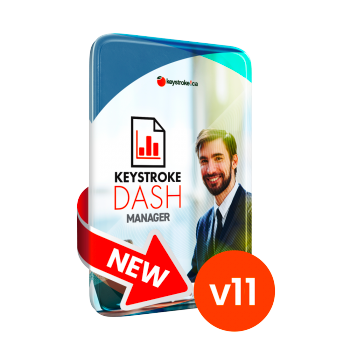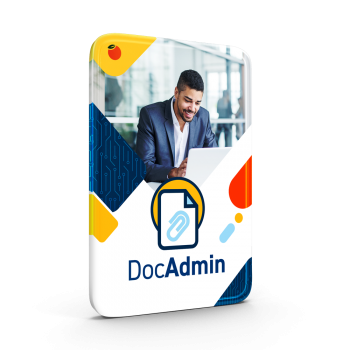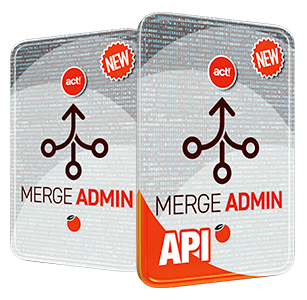QuickBooks is an accounting program with over 4.5 million active users for a reason - it's very good at small business bookkeeping. Act! is a CRM with over 800K users worldwide, because it's very good at contact management. If both programs are good at their respective jobs and have very few overlapping features, why do so many QuickBooks users try to get by without a CRM?
To be clear, we don't think this practice is about saving money. When QuickBooks introduced a "Customer Manager" plugin to their product in the early 2000s, it quickly foundered due to lack of adoption and it was free. Many businesses are too focused on their trade or too transactional to see the value in customer relationship management, and the fact is their businesses suffer for it.
And no, using Outlook, a spreadsheet, or your Gmail account is not a CRM. They may serve a single user tracking contact or calendar details, but these simple functions are not the stuff of contemporary CRM's. To understand what these business owners are missing, the following is a list of the top 6 reasons to employ a CRM alongside their QuickBooks.
- Finding Data: QuickBooks allows you to search for customers or vendors by basic field data; otherwise, it is designed to filter by transactional data only. Looking for customers from a certain industry, referral source, region, job role, status, or creation date, or any combination of those criteria, is not supported. And forget about such simple CRM searches like looking up customers with or without an email, because that isn't supported either. In fact, the only search operator in QuickBooks is "contains".
What's worse, QuickBooks isn't designed to save any searches, or do segmentation of any kind, so each simple lookup done in QuickBooks has to be done the next time from scratch. Needless to say, any savings gained by not investing in a CRM are lost in the time wasted searching for data. - Manage Communications, Engagements, and Follow-ups: Even if searching & segmenting was supported in QuickBooks, there is little to be done with these lookups they yield. Aside from statements, there are few batch communications you can deliver to customers using QuickBooks. The simple process of notifying them of a sale ending or a new promotion or product is not supported.
And while scheduling meetings and follow-ups might be available in Outlook; recording the outcome of any of those engagements isn't. This means you can't report on customer interactions at all, or know whether they were successful. Outlook or Gmail calendar data only tell you what was scheduled, not what happened. Imagine getting a customer complaint, and not being able to know if any of your team's scheduled follow-up calls or appointments were even completed, much less know what came of them. - Optimize Sales with dynamic pipeline management: QuickBooks is great at showing you what you've earned, but not what you will earn in the future. Pipeline management allows you to project income based on the deals you're working on, and plan accordingly. Most businesses without a residual revenue model start each month at zero, meaning they have no idea what they'll earn in the next 30-60-90 days without a way of tracking sales in a pipeline. Yes, QuickBooks has a basic quoting tool, but there is no way to report on them, least of all a way of knowing when, or even if these deals may close. Without understanding your sales cycles, weighted totals, estimated close dates, or probabilities of close, your business is flying blind.
- Generate leads through targeted marketing: QuickBooks is great for tracking income; not generating it. For example, QuickBooks cannot create or track new business leads through merge-mailing customers, emarketing, or leveraging online lead-gen sources like landing pages and appointment-setting services. It's an accounting program, not a tool for harvesting new business.
- Build time-saving workflows and processes: This one is easy because we've all experienced them at work before, but making employees complete repetitive and inefficient tasks is a business killer. They're not a one-punch knockout, but rather a steady jab that wears people out over time. Good employees thrive when they're supported by time-saving processes, and the same people suffer lower morale and productivity when they're absent. While most efficiencies in CRM workflows are self-evident, consider these basic day-to-day examples:
- automating customer renewal notices versus employees manually processing them
- allowing customers to update their contact information online, versus employees doing so manually from customer calls or emails
- having customers complete quote or service requests online, and have those requests trigger scheduled follow-ups, versus retyping all this information from an email your website spit out
- automatically scheduling all the steps for provisioning for a new customer so no steps are missed, compared to each employee remembering to complete them each time.
- Access Contacts on the Go: Unless you're running a retail store, work generally does not end at the front door of your business. You need access to your customer data where ever you go, and most accounting programs don't provide mobile access. This is a gap easily filled by CRM's.
Integrating the two
While there are many more examples of the benefits of employing a CRM in your business, these are certainly the most common limiters of their absence. Real effeciencies, though, can be found in not simply using a CRM alongside your accounting program, but integrating the two. Being able to see your CRM contacts as customers inside of CRM helps your team be more informed and make better decisions, faster. Segmenting purchase patterns in your CRM allows you to target your marketing more effectively, and alerting staff to credit risks can save your business needless bad debts.
Integrating accounting data into a CRM will not eliminate your reliance on QuickBooks, because your accounting staff will always need to track profit & loss, balances, and chart of accounts. But for those staff managing accounts receivables, collections, and other tasks that rely only on reading and writing transactions, this integration may be sufficient.
And getting started with a CRM like Act! is easy. Our Qsales integration setup wizard walks the user through a 7-step process to wed the programs together, and quickly populates your new database with all contact details on your customers & vendors from QuickBooks. Once this is done, it downloads the transactional details under each new contact. That's right, no keying in of data, as Qsales does all the heavy lifting for you, so your database is ready for production on the first day.
In summary, less can be more
In summary, for those amongst the 4.5 million QuickBooks users trying to forsake the use of a CRM, it might be time to reflect. A CRM may not simply make you more efficient and productive, while generating and tracking leads for your business, but it may actually reduce your reliance on QuickBooks itself when the data is integrated properly. In fact, integrating QuickBooks data into your CRM may deliver your team the visibility of QuickBooks, the efficiencies of a CRM, while reducing employee exposure to sensitive accounting data.



